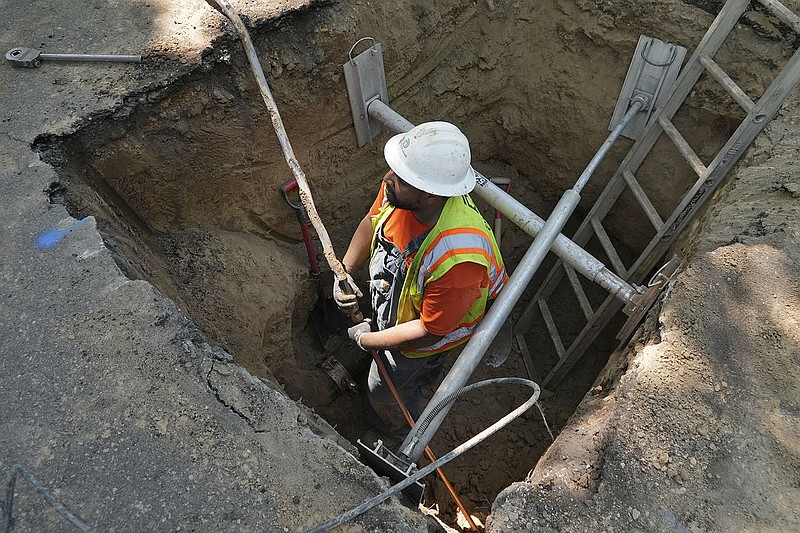WASHINGTON -- Democrats are considering a $6 trillion infrastructure investment plan that goes far beyond roads and bridges to include core party priorities, from lowering the Medicare eligibility age to 60 and adding vision and hearing benefits to incorporating a long-running effort to provide legal status for certain immigrants, including "Dreamers."
The Senate is preparing a budget document, alongside one in the House, that puts a new focus on President Joe Biden's big legislative proposal and shows the scope of what Democrats want to accomplish with a go-it-alone approach, separate from any possible bipartisan deal.
Back from his overseas trip, Biden is reengaging with Congress as the administration and its allies on Capitol Hill embark on a two-pronged strategy: reviewing a nearly $1 trillion plan from a group of 21 senators, including 11 Republicans, while pursuing their own priorities in a more substantial package.
Half of the total in the $6 trillion plan is expected to be paid for, largely with Biden's proposed taxes on corporations and people earning more than $400,000. Details emerging Thursday were confirmed by a person who was not authorized to publicly discuss private deliberations and spoke on condition of anonymity. Initial Senate votes are expected in July.
"We have an enormous amount of work in front of us," Sen. Bernie Sanders, I-Vt., chairman of the Senate Budget Committee, said after making a closed-door presentation to colleagues late Wednesday.
Sanders would not disclose details. He indicated that the size and scope is needed to "address the crisis facing working families, to rebuild our crumbling infrastructure, to deal with climate change, to deal with the needs of children and parents, to deal with the affordable housing crisis."
The goal, he said, is also to ensure that the wealthiest people and the largest companies "start paying their fair share of taxes."
Biden is expected to be reviewing the nearly $1 trillion proposal from the bipartisan group of senators. The group shows the potential for an agreement that could theoretically reach the 60-vote threshold needed to advance bills.
Biden said Wednesday that he was "still hoping we can put together the two bookends here" for a compromise.
The bipartisan proposal offers about $579 billion in new spending, including $110 billion on roads and highways, $66 billion on passenger and freight rail, and $48 billion on public transit, according to a Republican who requested anonymity to discuss it. An additional $47 billion would go toward efforts to fight climate change, and there is money for electric vehicle charging stations.
The senators' group suggests tapping $120 billion in unspent covid-19 relief money and $315 billion from the Paycheck Protection Program, created to help businesses pay workers during the coronavirus lockdowns. The senators also want to go after tax dodgers by bolstering the Internal Revenue Service.
One source of contention among these senators is over raising gas taxes by linking future increases to inflation. It's an idea that many other Democrats oppose and goes against Biden's pledge not to tax Americans earning less than $400,000. The bipartisan group is also considering a fee on electric vehicle users.
For his plan, Biden has proposed raising taxes on corporations, from 21% to 28%, to fund the jobs plan, and increasing taxes on Americans earning more than $400,000 -- moves that Republicans flatly oppose.
House Speaker Nancy Pelosi, D-Calif., made it clear Thursday that there will almost certainly be a second bill from Democrats, regardless of whether a bipartisan deal is reached. She panned the effort to increase the tax that consumers pay at the gas pump.
"I don't think the American people, America's working families should be footing the bill for roads and bridges and the rest that America's wealthiest people and businesses are using," she said.



